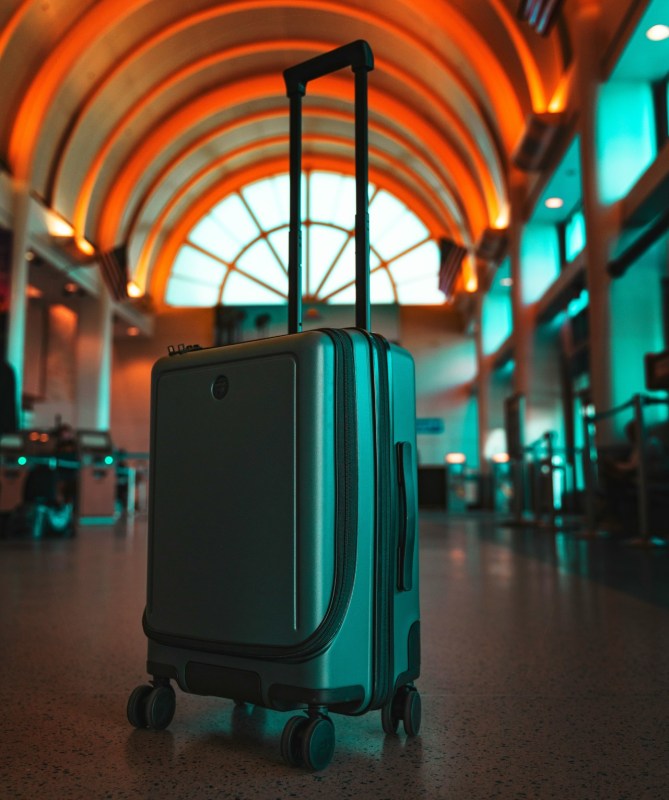
Preparing for a trip is an exciting time. First, you have to pick out a destination. If you’re a skier, maybe you opt for Lake Tahoe’s alpine magic. Or, if you need a warm getaway, Jamaica’s food, culture, and beaches could be ideal. Whatever you decide, performing research and learning about new locales is half the fun.
After securing accommodations, you’ll need to buy a plane ticket. But sometimes a fare appears that seems too good to be true. It probably is. Today, most major carriers charge baggage fees, making you pay to bring what you need.
Recently, Delta Airlines raised its baggage fees, following others that did the same. Though a small upcharge, every bit adds up when you’re on vacation. Here’s how much Delta raised baggage rates, what other airlines charge, and how you can avoid these fees.

How much did Delta Airlines raise its baggage fees?
Typically, when one airline raises baggage fees, others follow suit. In late February, United Airlines and American Airlines raised their fees, and now Delta is following their lead. Here’s how much Delta baggage fees increased.
Beginning March 5, Delta charges $35 for the first checked bag, a 17% increase over the previous $30. The second checked bag costs $45, up 13% from the prior $40.
So, you’re looking at $80 if you need to check two bags. On longer trips, that’s a necessity and puts a solid dent in your wallet. That’s money you could use for a meal at a local restaurant or gas for a rental car. It’s just a hassle.

What do other airlines charge for baggage?
American and United recently implemented similar increases for baggage. Of course, if you want to avoid fees altogether, Southwest is an appealing option.
United Airlines baggage fees increased by $5 for each checked bag on North American flights. The first costs $40, while the second is $50. A $5 discount applies per bag if customers pay 24 hours in advance.
American Airlines baggage fees increased by $5 on domestic flights, with the first checked bag now being $35 and the second being $45. For the first bag, that price only applies to advance online purchases. If paid for at the airport, it increases to $40. For flights between the U.S., Canada, Mexico, and the Caribbean, the first checked bag costs $35, regardless of transaction type.
Lastly, Southwest baggage fees are $0 for the first two bags, provided they meet size and weight requirements. Bags can’t exceed 62 inches (L+W+H) or weigh more than 50 pounds.

Can you avoid airline baggage fees?
Baggage fees are a hassle, but you can avoid them in certain ways, such as by using a different payment method or being active duty military. Here’s how.
- The first option is to fit everything in a carry-on bag, but that might not be enough space for everything you need.
- United allows one free checked bag for active military, premium cabin passengers, United Chase credit card holders, MileagePlus Premier members, and long-haul international flights.
- Delta includes a free checked bag for active military, Delta SkyMiles Medallion Members, and Delta SkyMiles American Express Card Members.
- American Airlines also has exemptions for active military, AAdvantage Aviator and Citi/AAadvantage cardmembers (domestic flights), AAdvantage Gold Status, oneworld Ruby, and trips to certain international destinations.
Visiting new places lets you explore. But first, you have to get there. If you’re on a budget, baggage fees can strain your funds and limit your options unless you find ways to get around them. While these costs are now a part of air travel (except on airlines like Southwest), don’t let that hinder your sense of adventure. You can always just finally get that travel credit card from your favorite airline.
Editors' Recommendations
- iPhone photography tips: How to take better travel photos on your phone
- How to renew Global Entry (and when you should do it)
- Here’s what you should never buy on vacation
- The most common (and weirdest) items found in unclaimed baggage at the airport
- How to get over jet lag quickly — Try these effective tips



